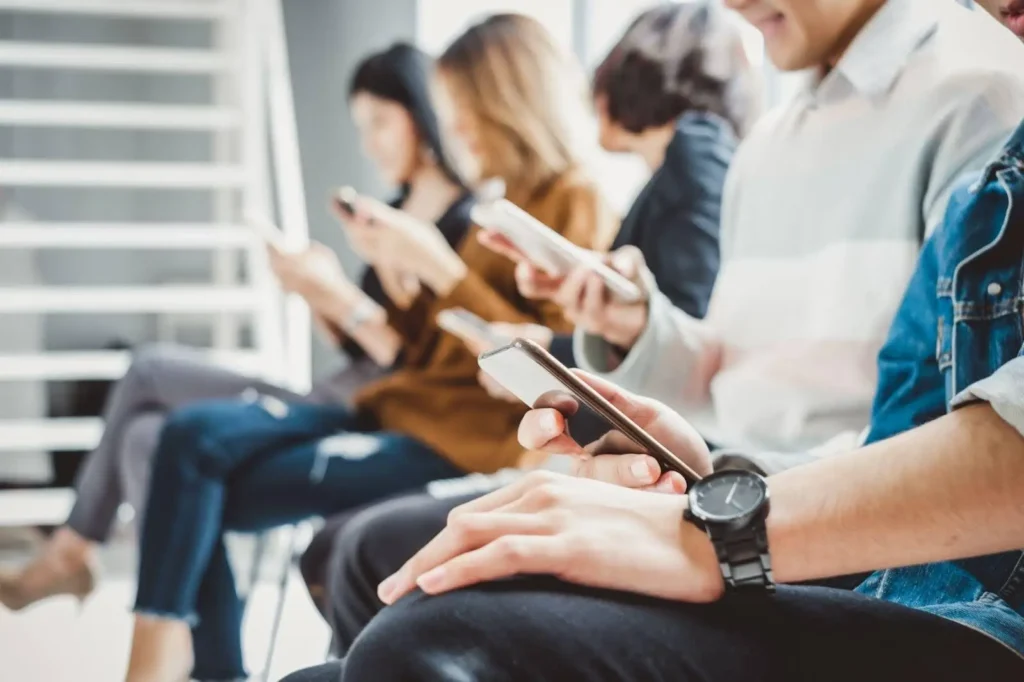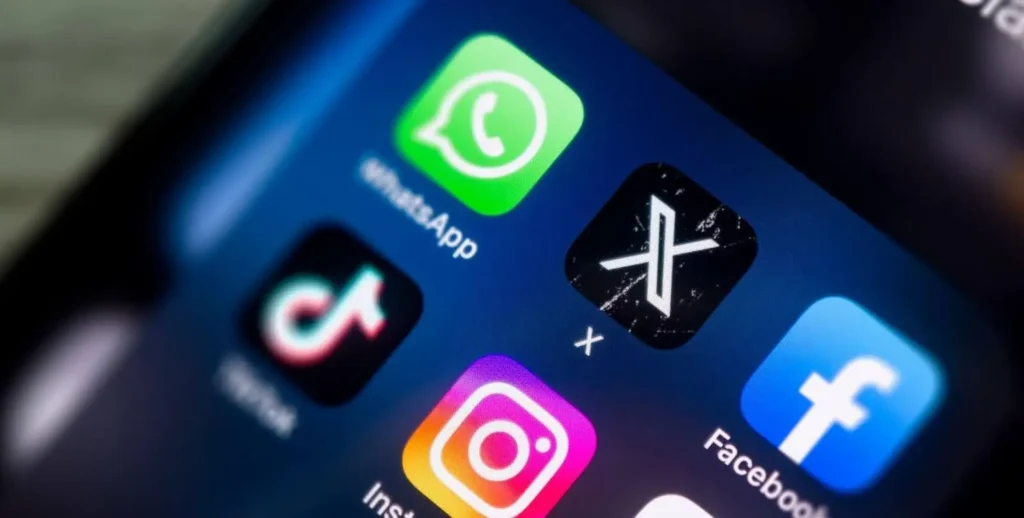Over the past ten to fifteen years, social media has become a more easily accessible, time-consuming part of daily life for many people. For some, it’s become an obsessive habit or an addiction.
Social media addiction is a real thing, and it is defined as when one has excessive use of social media — whether posting or consuming. It also can begin to impact mental health and everyday life. While it’s popular among almost all age groups, most who consume social media frequently do not always see the problems that can be associated with their use.
Social media use isn’t all bad. It can be a useful distraction from other unhealthy habits. However, it is important to keep in mind that although it may not seem harmful, excessive social media use can have negative impacts.
When Is Social Media Use Considered Excessive?
While there’s no set amount of screen time to watch out for, it’s important to note that social media addiction is more based on the negative impact it has and the urge to use it. For example, one might not be on social media for hours on end, but over the course of a day, it can easily add up to multiple hours if you’re constantly feeling the urge to check it. Social media use is considered excessive if it negatively impacts your everyday life. For example, is it causing issues in your relationship? Are you behind on important tasks at work or your personal life due to excessive use? Do you withdraw from social gatherings and prefer to scroll?
How Do You Know If Someone Is Addicted to Social Media?
This one can be tricky since everyone is different. Below are a few warning signs:
- If you feel the constant need to check social media platforms of your choice (e.g.: TikTok, Facebook, X (Twitter), LinkedIn, Instagram, etc.).
- This can happen if you feel the need to check social media first thing in the morning, before going to sleep, if you wake up in the middle of the night, or during work or school.
- If you checked it once already, but feel the need to constantly check again within minutes.
- If you find yourself constantly thinking about what could be new or updated on the platforms or how many new likes your post generated.
- If you become frustrated or agitated when you don’t have access to a platform, or the ability to access it because of internet access, life events, work, school, etc.
- You are engaging less with your relationships or family or tuning them out because you are scrolling through your phone.
What Makes Social Media Addicting?
In the moment, social media scrolling, viewing, and overall use feels like a mindless thing to do. It might feel calming or like a distraction from life problems. But it can also affect your brain and mental health.
Using social media can boost dopamine. When using social media for fun, it can feel rewarding. Hence the boost in feeling good. It can cause your brain to continue to find this happy feeling which will lead to extended social media use.
This can happen when you see positive engagement on a social post you made. It can also happen when you see a favorite creator’s recent post, or something that just emotes a positive reaction. Once that feeling wears off, you find yourself going back to social media for more use.
How Do You Remedy a Social Media Addiction?
There’s good news when it comes to social media addiction and cutting back on use: this is something that can be remedied. And the tips below can help you achieve a better use and relationship with social media:
- Set aside a certain amount of time for social media each day.
- Set a timer to keep you honest and accountable
- Remove social media apps from your phone and tablet.
- Find a hobby that doesn’t involve social media such as sports, cooking, drawing, or reading. Something you can engage in wholeheartedly and enjoy.
- Keep your tablet, computer, and/or phone out of reach when in bed or while watching TV.
- Take breaks from social media altogether. Try to take a break at least one day a week. Only use it when necessary — such as for a job.
- Instead of interacting with friends and family over only text or social media, try to interact in person, or even over video calls.
- Go out with friends or family and leave the phone behind. Fully engage in conversation and spending time together.
If you continue to worry about your social media use or if it is impacting your functioning in everyday life, it can be helpful to work with a licensed professional. A counselling therapist can work with you to unpack the effects of social media use and create new healthy coping habits.
At Onyx, we are here to support you on your mental health journey and living your best life. Contact our office today to schedule your first appointment with a skilled and competent therapist.




